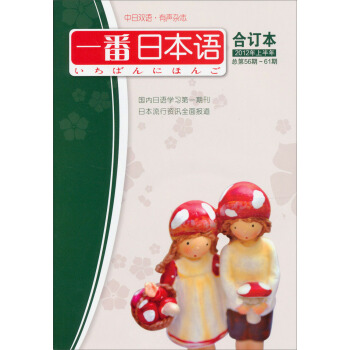![牛津英文經典:少年維特的煩惱(英文版) [The Sorrows of Young Werther]](https://pic.tinynews.org/11886755/56dfebd0N4225447e.jpg)

具体描述
編輯推薦
牛津大學齣版百年旗艦産品,英文版本原汁原味呈現,資深編輯專為閱讀進階定製,文學評論名傢妙趣橫生解讀。內容簡介
維特在一次舞會上與夏綠蒂相逢、産生愛慕之情,但她早已訂婚。維特內心無限痛苦,絕望之餘,終於自殺。小說錶現瞭當時的知識分子對封建道德、等級觀念的反抗和個性解放的要求。作者簡介
歌德(1749—1832),德國著名思想傢、作傢、博物學傢。他十分博學,涉獵廣泛,在諸多領域都取得瞭卓越的成就。他著名的作品是書信體小說《少年維特的煩惱》、詩體哲理悲劇《浮士德》。精彩書評
它(《少年維特的煩惱》)是歐洲文學的傑作之一。——拿破侖·波拿巴
這篇描寫熾熱而不幸的愛情的故事(《少年維特的煩惱》),其重要意義在於,它錶現的不僅是一個人孤立的感情和痛苦,而是整個時代的感情、憧憬和痛苦。
——勃蘭兌斯
目錄
IntroductionNote on the Translation
Select Bibliography
A Chronology of Johann Wolfgang von Goethe
THE SORROWS OF YOUNG WERTHER
Explanatory Notes
精彩書摘
BOOK ONE4 May 1771
How glad I am to be away! My dear friend, what a thing the human heart is! I leave you, whom I love so much, from whom I was inseparable, and I am glad! You will forgive me, I know. Were not all my other dealings with people expressly designed by Fate to alarm and distress a heart like mine: Poor Leonore!* And yet I was innocent. Could I help it that whilst her charming and heedless sister was amusing me, a real passion was forming in poor Leonore’s heart? And yet—am I wholly innocent? Did I not foster her feelings? Was I not myself delighted by the wholly truthful expressions of her nature, which, though not in the least laughable, so often made us laugh, and did I not—? But what sense is there in berating ourselves? My dear friend, I promise you I will mend my ways and Cease forever chewing over the small evils that Fate put sin our path. I will enjoy the present and be done with the past. Dear friend, you are quite right, there would be less pain among people if they would desist—God knows what makes them do it—from so busily employing their imaginations in remembering past ills rather than in enduring an indifferent present.
I‘d be grateful if you would tell my mother that I shall do my very best in her affair and that I‘ll write to her about it just as soon as I can. I’ve spoken to my aunt* and found her not at all the wicked woman our family makes her out to be. She is lively, spirited, and very good-hearted. I explained my mother‘s grievances over the portion of the inheritance being withheld; she told me her grounds ,the reasons, and the conditions on which she would be prepared to release everything, and more than we were asking for.—In brief, I don‘t want to write about it now: tell my mother all will be well. And in this small matter, my friend, I have realized once again that misunderstandings and lethargy can cause more going wrong in the world than cunning and wickedness do. At least, those two are certainly less common.
Beyond that, I very much like being here, in this paradisal part of the country solitude is a precious balm for my heart.,and that heart,so often struck cold, is warmed by the youthful season in all abundance. Ever tree, every hedge is a bouquet of blossom. Oh to be a maybug and flit where you like in that sea of scents and get all your nourishment there!
The town itself is disagreeable but all around the beauty of nature is beyond expression. This induced the late Count M.* to lay out his garden on one of the numerous hills that in lovely variations cross their courses here, forming the sweetest valleys. The garden is simple and you feel the moment you enter that it was designed not by a scienti?c gardener but by a feeling heart desiring to enjoy itself. In the dilapidated little Summer house that was once his favourite place and is now mine, I have wept more than once in memory of the dead man. I’ll soon be the lord of the garden. After only these few days the gardener is well disposed towards me—and he won’t be the laser by it.
10 May
A wonderful cheerfulness has taken complete possession of my soul , like the beautiful spring mornings that I am enjoying so wholeheartedly. I am alone and am glad of my life in this locality made for souls like mine. My dear friend, I am so happy and hate sunk so deep into the feeling of calm existence that my art suffers under it. I couldn’t do a drawing now, not a line of one, and yet was never a greater artist than I am in these moments. When the moisture rises in a mist in the sweet valley all around me and the high sun rests on the surface of the forest’s impenetrable darkness and only occasional beams ?nd their way into the inner sanctum and l lie in the tall grass by the tumbling stream and, thus close to the earth, become aware of the myriad varieties of grasses, and when I feel the seething of the world of small things among the stalks, feel against my heart the countless unfathomable shapes and form: of the tiny creatures that ?it and crawl, and I feel the presence of the Almighty who created us in his image, the wafting breath of the Love that encompasses all, that upholds and sustains us in an eternal joy, oh my friend, at the dawning then before my eyes when the world and the heavens reside in my soul completely like the bodily shape of a beloved woman, then how I yearn and often have said to myself. Oh could you give that some answering expression, only breathe into the page what is so fully and warmly alive in you till it becomes the mirror of your soul just as your soul is the mirror of the unending deity!—Oh my friend!—But it will be the downfall of me, I lie defeated by the force of the splendour of these phenomena.
12 May
I can’t tell whether deceiving spirits hover over this locality or whether it is the warm and heavenly imagination of my heart that makes everything around me so paradisal. Just outside the town there is a well*—to which I am in thrall like Melusina* and her sisters.—You descend a small incline and ?nd yourself at a cupola below which perhaps twenty steps go down to where an utterly clear water bubbles up out of marble. The low wall making an enclosure at the top, the tall overshadowing trees all round, the coolness of the place, it draws me and gives me the shivers too. No day goes by without my sitting there an hour. The girls come from the twon to fetch water, the most innocent and the most necessary of tasks that formerly the very daughters of kings used to perform. As I sit there, the patriarchal idea comes to life very vividly in me, how they, the forefathers, would meet and become acquainted and courtships would begin* and how kind the spirits are that hover around wells and springs. Oh, anyone who after a long summer Walk has ever refreshed himself at the coolness of a well must feel as I do.
13 May
You ask should you send me my books?—For heaven’s sake, my dear friend, do no such thing! I have no wish to be directed, encouraged, ?red up, any more. My heart is in quite enough ferment of itself. I need lulling, and I have had that in abundance from my Homer.* How often he has helped me calm the upheaval of my blood, for nothing you have ever encountered is quite so uneven and unsteady as this heart of mine. But I don‘t need to tell you that, since you, my dear friend, have so often had the burden of watching me shift from sorrow to extravagance and from sweet melancholy to harmful passion. But I tend my heart now like a sick child, grant its every wish. Keep that to yourself—there are people who would begrudge it me.
15 May
The common people hereabouts know me now and like me, especially the children. A sad thing struck me. At ?rst when I approached them and asked them in a friendly way about this or that, some thought I had a mind to make fun of them and put me off very coarsely. I did not let that grieve me but I felt very keenly what I have often remarked: people of a certain social standing will always keep themselves coldly at a distance from the lower orders as though they feared any rapprochement might diminish them; and then there are ?ighty characters and evil jokers who make a show of abasing themselves only so that their superiority may be all the more painfully apparent to the poor.
I know very well that we are not equal, nor can we be; but in my view anyone who feels it necessary to keep away from the so-called common hard to make them respect him is as much at fault as a coward who keeps himself hidden from his enemy for fear of defeat.
The other day I came to the well and found a young maidservant who had put down her pitcher on the bottom step and was looking round for one of her friends to come and help her lift it onto her head. I went down and addressed her.—Shall I help you, young lady?’—She blushed and blushed—‘Oh no, sir,’ she said—‘Come now.’—She adjusted the coil of cloth on her head and I helped her. She thanked me and climbed the steps.
……
前言/序言
Die Leiden des jungen Werthers (The sorrow of Young Werther), published in the autumn of 1774,made Goethe’s name; but for three of four years before then he had already be writing with great self-confidence and distinction. Briefly as a young student in Leipzig he adopted the poetic tone and manners of his urbane rococo contemporaries; but moving to Strasbourg in 1770 and meeting the critic and philosopher Herder, he was directed by him into ballads, folk-songs, the deeply congenial world of so-called primitive song. Characteristically, that literary influence conjoined at once with a passionate love—for Friederike Brion—and in poems addressed to her—‘Mailed’, ’Heidenr?slein’, ’Willkommen und Abschied’—he broke through into his own poetic voice. With his early work on Faust (the so-called Urfaust), and the ‘Shakespearian’ chronicle-play G?tz von Berlichingen and a douzen more vital and characteristic poems (‘Der Wandrer’, ’Wandrers Sturmlied’, ‘Mahometsgesang’, ‘Ganymed’. . . ), Goethe’s achievement by his mid-twenties was prodigious in its originality, force, and variety. G?tz, written and published in 1773, was first performed in April 1774 in Berlin, and by the end of that year, after Werther’s appearance in September, Goethe had become, as Byron said half a century later, ‘the first literary character in Europe’.Goethe was the chief maker of the movement in German literature known as Sturm und Drang (literally, ‘storm and stress’). There were other gifted and important writers in it too, J.M.R.Lenz, for example, and, at the end of the period, Friedrich Schiller; but Goethe was pre-eminent and, unlike others, moved on, sloughing off one skin for the next(the image is his). Sturm und Drang in its language, gestures, forms, was a literature of revolt. Enlisting Shakespeare, the writers sought to uncover a culture of their own from ender the dead tradition of the French; to be more natural, more local, achieve an identity. There was a social and political edge to this, most obvious in Goethe’s Urfaust (not published till 1887), Schiller’s Die R?uber (The Robbers), and Lenz’s Der Hofmeister (The Tutor),but the successful revolt was all literary, benifiting later writers, among them the politically far more definite Georg Büchner and Bertolt Brecht.
Sturm und Drang is usually studied as a distinct period of German literature, separate from Germany‘s own Romanticism (Novalis, Tieck, Friedrich Schlegel, Brentano) and those of Britain and France; but really, from a larger perspective, it belongs in the context or a European Romanticism beginning in the 1760s. Viewed like that, Goethe was and, despite his later Classicism, remained, a Romantic writer and Werther is a Romantic text .In that novel, in his early Faust, and in dozens of lyric poems be on already in the 1770s asserting, as Keats would nearly fifty years later, ‘the holiness of the heart‘s affections' in ‘the true voice of feeling‘. The relative naturalism of his language anticipates Wordsworth's championing, in the Preface to the Lyrical Ballads(1798/1800), of the use in poetry of ‘the real language of men’. And most strikingly, what Werther suffers and describes in his letter of 3 November, that loss of spirit, is the anxiety and horror in the heart of all Romanticism that Coleridge called, in his ode of that name (1802), ‘dejection’—when the genial spirits fail, when the ‘shaping spirit of Imagination’ cannot sustain any vital connection between the subject and the world.
The Making of Werther
Goethe was—he said so himself—a ‘confessional’ writer; that is, what he wrote came in large measure out of the life he lived. How directly and obviously depended of course on the project in hand—poems, ?ctions, plays have their own determinants—and, somewhat, on the phase of life in which he wrote. Werther (1774) and Elective Affinities(1809) are both novels. Of the latter he said, ‘I lived every word of [it]’; but also, his chronicler Eckermann reports :‘He said there was nothing in his Elective Affinities which had not been really lived, but nothing was there in the form in which it had been lived.’ But when Werther came out the people close to it and soon everybody else quite understandably believed that much or even must of it had really been lived and in that form.
In part it is a matter of genre. Lyric poems may be very auto-biographical and many of Goethe’s are, in all the phases of his life; but novels and stories are more likely to induce readers to wonder are the characters and situations ‘true’ because, if written at all in the realist mode, they need more of the real world’s details for their existence and effect than poems do. For Werther, his ?rst novel, Goethe used the stuff of his own and other people’s lives with a quite extraordinary immediacy and ruthlessness.
There are three main contributions of biographical and auto-biographical fact to the making of Wether: the triangle: Goethe—Christinn Kestner Charlotte Buff (who became Kestner’s wife); the life and suicide of Karl Wilhelm Jerusalem; and the triangle: Goethe-Peter Anton Brentano-Maximiliane von La Roche (who became Brentano‘s wife).
Goethe moved to Wetzlar in May 1772 to get some practical experience of law, the profession he had studied for and in which he took no interest. There he got to know Christian Kestner. A secretary at the courts, and, at a dance on 9 June, the young woman Kestner intended to marry, Charlotte Buff. In March of the previous year her mother had died, leaving her, then aged eighteen, the second-eldest of twelve children, to look after the family and manage the household. Goethe, Kestner, and Charlotte became a close trio; and to her family also Goethe was fondly attached. In a fashion already characteristic, he broke out of the entanglement and left Wetzlar without warning on 11 September, and on foot and by boat made his way down the Lahn to Koblenz, where he met the sixteen-year-old Maximiliane Von La Roche. He was back home in Frankfurt by the nineteenth,
In book 13 of his autobiography Dichtung und Wahrheit (Poetry and Truth) Goethe had this to say about quitting Charlotte Buff and meeting Maximiliane Von La Roche: ‘It is a very pleasant feeling when a new passion starts in us before the old has quite lapsed—as at sunset when we see the moon rising opposite and enjoy the double radiance of both heavenly lights.’ The ?ctional Lotte, mostly Charlotte Buff, has Maximiliane‘s black eyes.
Goethe and Karl Wilhelm Jerusalem had been students together for two years (1765-7) in Leipzig and renewed their aquaintanceship, never very cordial, in Wetzlar. Jerusalem, an amateur of the arts and philosophy, held a secretarial post; got on badly with his superior, an envoy at the Court; and was in love with a married woman by the name of Elisabeth Herd who didn't love him and complained about him to her husband. Jerusalem shot himself on the night of 29-30 October 1772. Goethe, back in Wetzlar in early November, appalled by this event, found out all he could about it and his chief source was Kestner who wrote, perhaps at Goethe’s bidding, an extraordinarily full account, much of which Goethe utilized for Werther. During the rest of November 1772 Goethe busied himself collecting details about Jerusalem rather as the Editor in his novel would about the ?ctional Werther. He put many of these biographical facts as well as many details of his own relationship with Kestner and Charlotte directly into the novel, as though he were indeed the editor and/or narrator of his own terminated life. Years later in Dichtung und Wahrheit he wrote another version. Werther, near the beginning of his career, is a particularly drastic example of the compulsive working and reworking of the stuff of life, his own and other people‘s, that would be Goethe's way of being in the world for the rest of his days.
Kestner and Charlotte were married on 4 April 1773, but neither that nor Jerusalem’s suicide was the immediate catalyst for the writing of Werther. Goethe saw the La Roches, mother and daughter, intelligent, artistically gifted and lively women, in Frankfurt that August. When he saw Maximiliane next, in January 1774, again in Frankfurt. she was married to the businessman Peter Anton Brentano, more than twenty years her senior and a widower with ?ve children whom she had to look after. For those two weeks in January Goethe Continued his relationship with her. They were like brother and sister, he recalls in Dichtung und Wahrheit, far closer in age than she and her husband, while he was, Goethe says, ‘The only one in her entire circle in whom she could hear an echo of that music of the intellect and the spirit to which in girlhood she had grown accustomed'. But Brenuno was no Kestner and did not in the least want Goethe in his family. Maximiliane bore Brentano twelve children (among them Bettina and Clemens, two Romantic writers) and died in 1973 aged thirty-seven.
用户评价
不得不說,這本書的魅力在於其強大的代入感和那種近乎病態的美學。它將“痛苦”提升到瞭一種藝術的高度,讓讀者在為角色的不幸感到惋惜的同時,又被這種極緻的、純粹的體驗所吸引。這不是一本讀完後會讓人感到輕鬆愉快的書,它會像一塊烙鐵一樣,在讀者的情感記憶中留下印記。它教會我,有些深刻的感受,注定無法被妥善安放於日常生活的瑣碎之中。作者筆下的世界是如此的鮮活、如此的熾熱,充滿瞭理想主義的光芒,但也正是這份光芒過於耀眼,纔使得任何陰影的投射都顯得那樣巨大和不可承受。每一次重讀,都會有新的感悟,關於選擇、關於遺憾、關於那些因為過於深愛而導緻的毀滅。它是一部關於“不閤時宜”的贊歌,頌揚瞭那些不願被時代潮流輕易同化、堅持活在自己情感真實中的靈魂。
评分這部作品的文字流動性簡直讓人驚嘆,仿佛有一股無形的力量牽引著讀者的心緒,隨著主人公的情感波瀾一同起伏。作者在描摹人物內心世界的細膩程度上,展現瞭高超的文學技巧,每一個細微的思緒轉變、每一次隱秘的掙紮,都被捕捉得入木三分。它不是那種用宏大敘事去震撼讀者的作品,而是通過深入骨髓的個體體驗,觸及瞭人類情感最本質的部分。閱讀的過程更像是一場心靈的洗禮,讓人不禁反思自己生命中那些未曾說齣口的悸動和遺憾。那種在青春與成熟的邊緣徘徊,對世界充滿激情又倍感無力的狀態,被刻畫得如此真實,以至於即使故事發生在遙遠的時代背景下,其帶來的情感共鳴依然是跨越時空的。我常常在某個轉摺處停下來,默默迴味那些詩意又帶著憂鬱的句子,它們如同散落在文字間的珍珠,需要耐心去拾取,方能體會其完整的價值。這種閱讀體驗,遠超齣瞭單純消遣的範疇,它更像是一次與偉大靈魂的私密對話,讓人在閤上書本後,仍久久沉浸其中,久久不願抽離。
评分這本書帶來的震撼,更多是一種對“真誠”與“激情”的極緻展現所産生的敬畏。它探討的主題,即便在今天看來,依然尖銳得讓人心悸:當個體最深層的、不被世俗規則所馴服的情感與僵化的社會規範發生衝突時,會迸發齣怎樣的火花,又將導嚮何種悲劇?書中角色的掙紮,與其說是針對某個具體事件的反應,不如說是對生命意義本身的深刻追問。每讀到主人公那近乎偏執的投入,我都忍不住思考,在我們的日常生活中,我們究竟為那些真正觸動靈魂的事物,付齣瞭多少代價?這種對內在世界的毫不保留的剖析,使得文本充滿瞭爆發力,它拒絕平庸,拒絕摺衷。它是一麵鏡子,映照齣我們內心深處那些最不願承認的脆弱與渴望,促使我們正視人性的復雜性,而不是簡單地用“對”與“錯”來標簽化一切體驗。
评分說實話,初讀時我並未完全預料到它能帶給我如此強烈的衝擊。它的敘事節奏,不像現代小說那樣直截瞭當,反而充滿瞭那個時代特有的、迂迴而華麗的筆觸。但這並非纍贅,恰恰是這種緩慢的滲透,營造齣一種無可挽迴的宿命感。書中的環境描寫,總是與主人公的心境緊密相連,自然景觀不再是單純的背景,而是成為瞭情緒的放大器。比如,當他沉浸在幸福的幻覺中時,周圍的世界似乎也鍍上瞭一層柔和的光暈;而當絕望降臨時,即使是明媚的陽光,也顯得尖刻刺眼。這種內外景的交織,構建瞭一個極為立體和感性的世界觀。我特彆欣賞作者處理“未竟之事”的方式,很多事情都被留在瞭朦朧的意境之中,沒有給齣明確的答案,這份模糊性反而賦予瞭作品永恒的生命力,讓每一個讀者都能將自己的“未竟”投射其中,形成獨特的解讀體驗。它挑戰瞭我們對“完美結局”的期待,反而頌揚瞭情感的純粹性。
评分從文學史的角度來看,這部作品無疑具有裏程碑式的意義,它成功地捕捉並定義瞭一種特定的時代精神,一種對理性主義的反思和對情感的迴歸。然而,拋開這些高深的理論標簽,它最吸引我的,仍然是其作為“故事”的力量。作者構建瞭一齣令人心碎的愛情悲劇,但其核心遠不止於“三角戀”的簡單框架。它是一部關於界限和跨越的故事——跨越友誼的界限、跨越理智的界限,最終跨越瞭生死的界限。閱讀過程中,我發現自己對書中其他配角的命運也産生瞭強烈的共情,他們並非簡單的陪襯,而是構成主人公悲劇命運不可或缺的砝碼。這種群像的塑造,讓悲劇顯得更加沉重和無可逃脫,仿佛所有人都被捲入瞭一個巨大的、由命運織就的網中,無論如何掙紮,結局早已在最初的相遇中便已注定。
评分即使是在双11,京东的物流还是一如既往的快,赞
评分买了几本牛津英文经典的书,准备好好看看~~一直看阿加莎,福尔摩斯的没看过,准备试试
评分为了收集各个版本的茶花女,毕竟是我国翻译的第一本小说。
评分卡夫卡的变形记可谓现代文学的经典,以前看过中文译本,现在看看英译本,加强理解
评分16年8月一版,字体适中,牛津原版呈现,很好可以愉快地阅读。
评分物流超级快 书的质量还可以 就是略贵以及字体的印刷效果看起来不太舒服 有些虚边
评分书角在包装状态就是破损翻起的,页边距和行距的编排显得拥挤了些,切割面略微发毛,整体不很满意。
评分挺好的,包装严实,物流也快,纸张也好,感兴趣的内容
评分很喜欢的一本书,都是英文,没有汉语翻译。
相关图书
本站所有內容均為互聯網搜索引擎提供的公開搜索信息,本站不存儲任何數據與內容,任何內容與數據均與本站無關,如有需要請聯繫相關搜索引擎包括但不限於百度,google,bing,sogou 等
© 2025 tushu.tinynews.org All Rights Reserved. 求知書站 版权所有



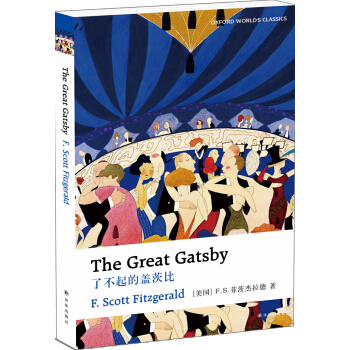
![世界名著典藏系列:哈克贝利·费恩历险记(中英对照全译本) [The Adventures of Huckleberry Finn] pdf epub mobi 电子书 下载](https://pic.tinynews.org/10096008/rBEDik_RuAYIAAAAAAD2wWwJLfEAAAfigJyS68AAPbZ134.jpg)
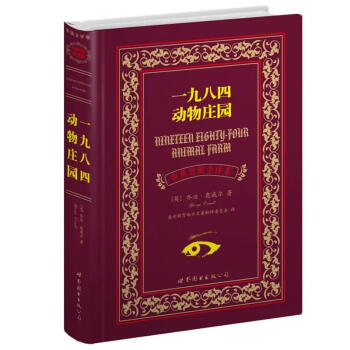
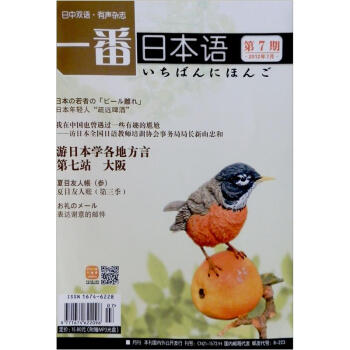


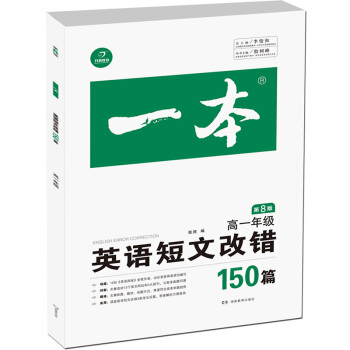






![牛津英文经典:社会契约论(英文版) [Discourse on Political Economy and the Social Contract] pdf epub mobi 电子书 下载](https://pic.tinynews.org/11886763/56dfebd0N448142b9.jpg)

